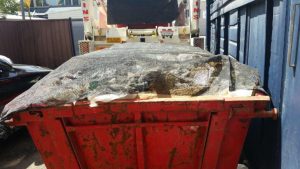What Not to Put in Skip Bins: A Comprehensive List
Skip bins are a convenient solution for waste removal, commonly used in construction sites, renovation projects, and household clean-ups. However, it’s crucial to know what items are suitable for disposal in skip bins and what should never be placed in them. Improper disposal can not only lead to environmental hazards but also legal consequences. Here’s a comprehensive guide on what not to put in skip bins.
Why It’s Important to Know What Not to Put in Skip Bins
Proper waste disposal is essential for environmental sustainability and public health. Items that are hazardous or not suitable for landfill disposal can contaminate soil, water, and air, posing risks to ecosystems and human health. Additionally, certain materials can damage skip bin machinery or endanger waste management workers.
Items Prohibited from Skip Bins
1. Hazardous Materials
Hazardous materials include chemicals, paints, solvents, pesticides, and other substances that are toxic, flammable, corrosive, or reactive. These materials require specialized handling and disposal methods to prevent environmental contamination and health risks. Instead of placing hazardous waste in skip bins, it should be taken to designated disposal facilities or hazardous waste collection events. For woody’s skip bin hire in the gold coast click this.

What Not to Put in Skip Bins: A Comprehensive List
2. Asbestos
Asbestos is a highly hazardous material commonly found in older buildings. Inhalation of asbestos fibers can cause serious respiratory diseases, including lung cancer and mesothelioma. Due to its health risks, asbestos must be removed and disposed of by licensed professionals following strict safety protocols. It should never be placed in skip bins or mixed with other waste.
3. Batteries
Batteries contain toxic chemicals such as lead, mercury, and cadmium, which can leach into the environment if not properly disposed of. Recycling facilities offer battery recycling programs to safely extract valuable materials and prevent environmental contamination. Skip bins are not suitable for battery disposal, and they should be taken to recycling centers or hazardous waste facilities.
4. Electronic Waste (E-Waste)
E-waste comprises electronic devices such as computers, TVs, smartphones, and appliances. These items contain valuable metals and components but also hazardous substances like lead, mercury, and brominated flame retardants. Recycling e-waste prevents valuable resources from ending up in landfills and reduces environmental pollution. Many municipalities offer e-waste recycling programs or drop-off locations for proper disposal.
5. Tyres
Tyres are not accepted in skip bins due to their size, weight, and potential for environmental harm. Improperly disposed of tyres can accumulate in landfills, create breeding grounds for pests, and pose fire hazards. Many tyre retailers and recycling facilities offer tyre recycling programs to properly manage end-of-life tyres and repurpose them into various products such as playground surfaces or road materials.
6. Food Waste
While organic materials can decompose in landfills, skip bins are not ideal for disposing of food waste. Rotting food can produce foul odors, attract pests, and accelerate the decomposition of other waste materials. Composting is a more sustainable option for managing food waste, as it produces nutrient-rich compost that can be used to enrich soil and promote plant growth.
7. Liquids
Skip bins are not designed to contain liquids, as they can leak and cause environmental contamination or pose safety hazards for waste management workers. Liquid waste includes paints, oils, chemicals, and other fluids. Proper disposal methods for liquid waste vary depending on the type and quantity of the liquid. Recycling programs, hazardous waste facilities, or specialized disposal services should handle liquid waste.
Conclusion
Proper waste management is essential for protecting the environment and public health. Understanding what not to put in skip bins is crucial to prevent environmental contamination, avoid legal liabilities, and ensure the safety of waste management workers. By following these guidelines and disposing of prohibited items responsibly, individuals and businesses can contribute to a cleaner and healthier environment for present and future generations.
